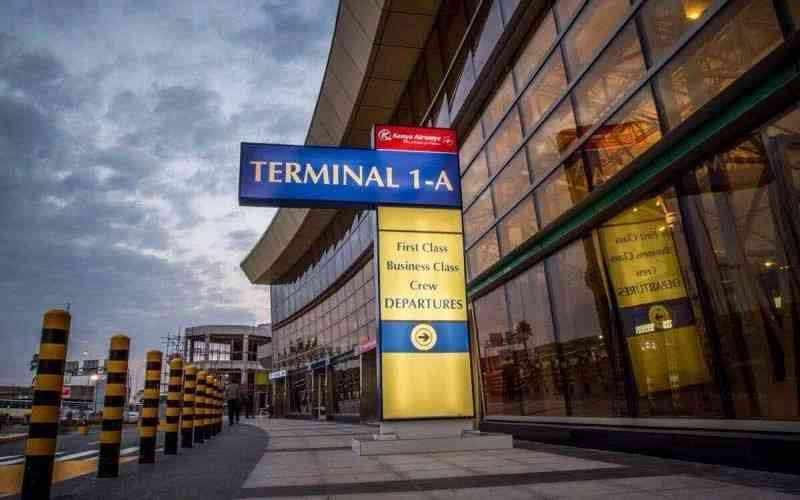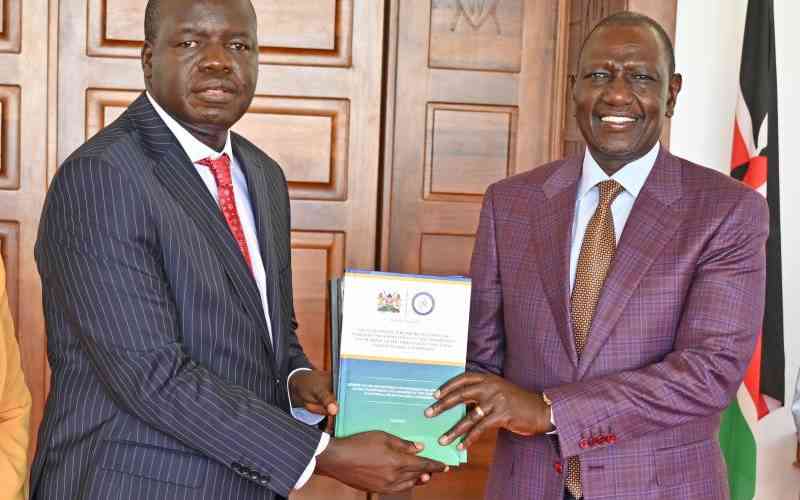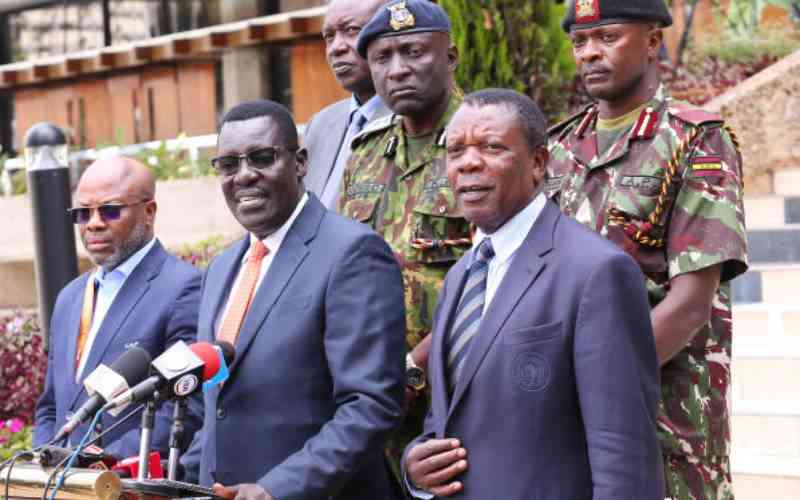The government on Friday, January 31, adopted the implementation of the Airport Charter, aimed at improving coordination, accountability, and efficiency at airports.
The charter, which will be in place within seven days, was jointly approved by several Cabinet Secretaries, including Kipchumba Murkomen and Treasury CS John Mbadi.
With its implementation, several changes are set to take place at airports.
To start, as part of new measures to enhance efficiency, the government has exempted all African citizens from Electronic Travel Authorization (ETA) requirements starting February 7.
According to the CSs, this move aims to facilitate easier movement for African travelers and boost tourism and business across the continent.
Further, the duty-free threshold for passengers has been increased from Ksh 50,000 to Ksh 250,000 to simplify customs procedures.
“To streamline passenger goods screening, Kenya has raised the duty-free threshold for passengers from Ksh 50,000 to Ksh 250,000.”
“To further strengthen customs operations, the Kenya Revenue Authority (KRA) will enhance staff capacity through training and equip all airport customs officers with body-worn cameras effective July 1 to ensure transparency and efficiency,” read the statement.
Plans to double immigration booths and increase staff at Jomo Kenyatta International Airport (JKIA) within 90 days were also announced.
Additionally, electronic self-clearance gates (e-Gates) will be introduced to further speed up the immigration process.
With the Charter in place, plans to deploy advanced technology for staff monitoring to ensure accountability will also be underway.
All staff working at JKIA—including those from the Kenya Airports Authority (KAA), KRA, Immigration, Port Health, KEPHIS, Tourism, and the National Police Service will be required to wear uniforms and name tags in two weeks.
Additionally, they will undergo customer service training to improve the passenger experience.
To enhance security, the government is implementing advanced risk profiling through improved customer information systems. Only flagged bags will be opened in dedicated screening rooms, ensuring a smoother and more respectful security process.
Additionally, the government will deploy 3D security scanning equipment in the next financial year.
Stay informed. Subscribe to our newsletter
Other short-term infrastructure improvements planned for the next six months include enhanced signage and wayfinding, improved airside and landside stormwater drainage systems, better air-conditioning in terminals, upgraded parking management, and covered walkways.
The implementation comes amid backlash over services and infrastructure at various airports, including Jomo Kenyatta International Airport, which has been plagued by leaks during the rainy season, blackouts, and complaints of missing luggage.

























